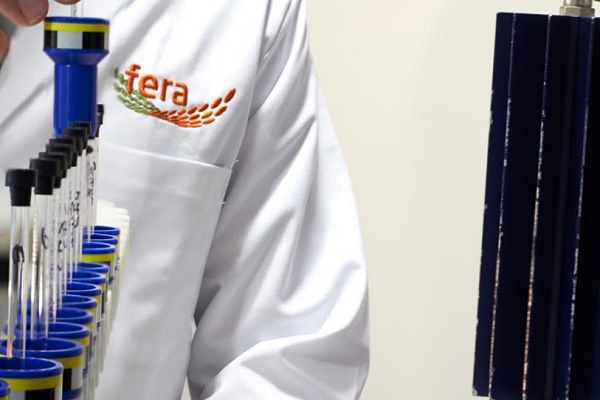A primary component in Fera’s emerging risk and early warning services for the global food and commodity supply chain is that of HorizonScanTM. A database of global raw material and commodity issues, which spans to all areas of food integrity, HorizonScanTM helps the industry to manage food safety issues very quickly. At its core, HorizonScan is a pro-active mode of technology that provides useful for anyone wishing to keep an inspecting eye on supply chains. The benefits of this scope from a global scale of preventing interruptions to businesses, creating automatic alerts for issues most important to you and to searching by commodity, country of origin, type of threat and supplier to name a few.

High-Resolution Mass Spectrometry (HR-AM) with gas or liquid chromatography modules aquire full scan MS information providing a plethora of potential ‘non-targeted’. This technology allows Fera to bring together expertise from opposite ends of the scientific spectrum, to effectively problem solve any food safety issue you may be facing. This has various applications such as chemical profiling through non-targeted methods, overall screening against known molecules, metabolomics, proteomics, and environmental fate and behaviour studies

In terms of eliminating the source of harmful pathogens from entering the food supply, OriGen can be utilised to identify the source of contamination within food through state-of-the-art Whole Genome Sequencing (WGS). Such a service can reduce waste and save money through avoidance of costly product recalls, whilst targeting salmonella, listeria, campylobacter and e.coli.

Nucleur Magnetic Resonance is used to study the structure of molecules in either isolation or complex mixtures. It is extremely useful when providing quantification for unknowns. Offering minimal sample preparation, non-destructive analysis and consistency for the detection and quantification of analyses; NMR has unique advantages over other methods. NMR can be used as a confirmatory tool across many disciplines as well as a valuable standalone technology for non-targeted analysis.

Alongside our partners in the national Crop Health and Protection Centre, we are working to deploy remote ‘in-field’ sensors that remain in crop fields to identify airborne entities. From here, data is effectively transmitted to allow for air mapping, which can lead to predictions and therefore protections of crop yield loss. An effective and prudent piece of technology, as a 1% increase in the UK’s total crop yield has the potential to generate an additional £50M for the industry and U.K. economy.





